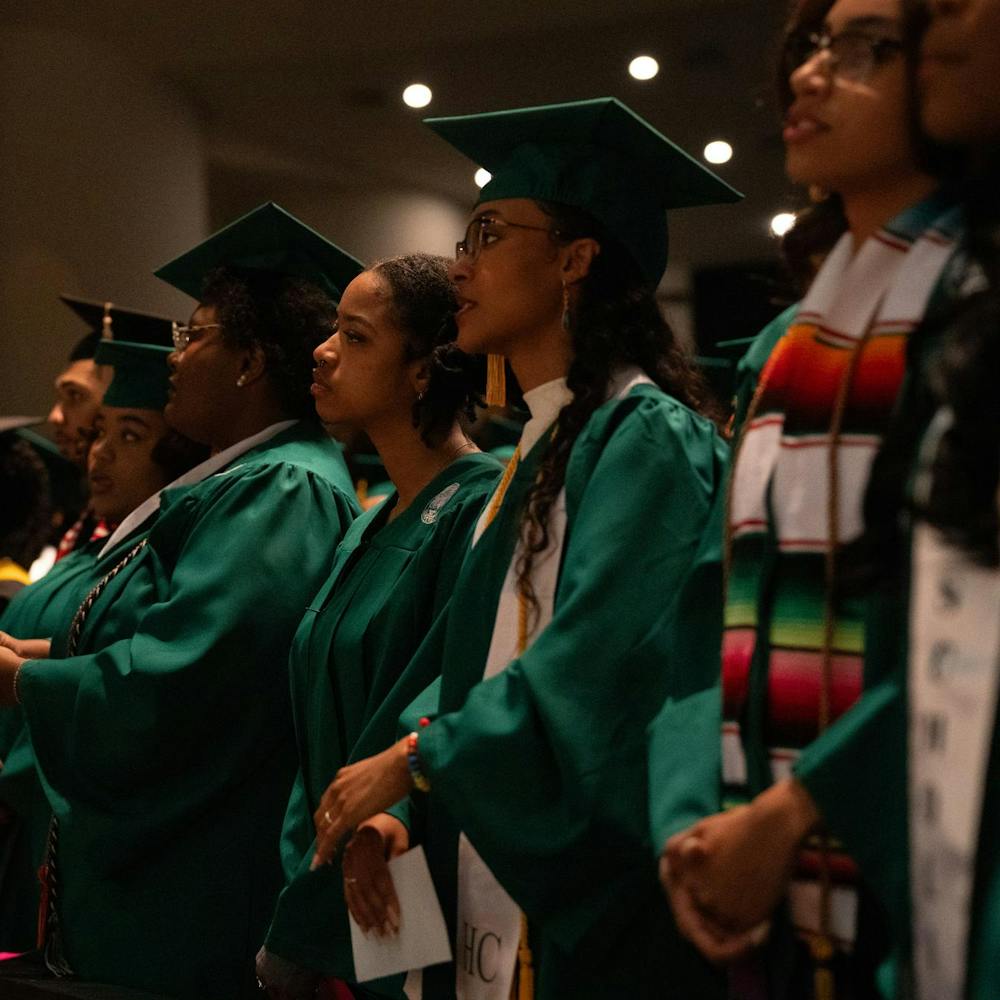The number of livestock in Iraq has been dwindling since the 1980s, but three faculty members at MSU are trying to solve the issue without leaving East Lansing.
The three MSU faculty members run a program called the U.S.-Based Video Teleconference Training for Iraqi Veterinarians, Herdsman and Meat Producers to help educate Iraqis on caring for livestock.
Robert Malinowski, the acting director of the MSU Information Technology Center and an educational psychology and educational technology doctoral student, Ann Rashmir, associate professor in the Department of Large Animal Clinical Sciences and William Raphael, an assistant professor in the large animal clinical sciences department, are the three faculty members picked by the Department of Agriculture, or USDA, to receive money to help Iraqi livestock farmers.
About a year ago the USDA, sent out a request for a grant to help the Iraqi Red Meat Association and the Iraqi Veterinary Medical Syndicate, Malinowski said. Malinowski wrote the grant request with Rashmir and Raphael to get MSU involved.
In Iraq, veterinary training is not nearly as thorough as in the U.S., Rashmir said. Rashmir said livestock in Iraq have suffered — with the number of sheep decreasing by 44 percent and other livestock down 30 percent during the past three decades.
“Countries that can’t feed themselves are normally very unstable,” she said. “We are trying to give them the basic infrastructure of providing their own food. It’s been a fabulous and eye-opening experience.”
The USDA was interested in the team’s approach to solving the Iraqi livestock shortage, so it received a $75,000 grant, Malinowski said. The team teleconferences live with the groups in Iraq two Saturdays a month.
“The request by the USDA was very vague,” Malinowski said. “It gave us an opportunity to put together the best program possible.”
The team also puts together lectures with photos and narration and will send those to Iraq to be translated and viewed. Afterward, they hold a question and answer session to make sure everything is clear, Raphael said.
“It’s really rewarding because they find it very useful,” he said. “They’re really appreciative and they love it.”
Malinowski said it is unclear what effect this program will have, but interaction between the group and the Iraqi’s they work with has gotten better and the Iraqi groups are asking questions more comfortably than they were in the beginning.
Raphael said helping the Iraqi livestock farmers better educate themselves goes along with MSU’s global initiatives for education.
“We’re giving the information in the same way we do here,” he said. “We’re just making the audience larger, helping the whole world get this information.”
Alice Topping, an international relations senior, said it is an interesting concept to utilize technology to share skills with other countries.
“I think it’s a good idea and cost effective,” she said. “As long as it is proven beneficial to the countries, we should definitely share what we know.”
Support student media!
Please consider donating to The State News and help fund the future of journalism.
Discussion
Share and discuss “MSU faculty work to educate Iraqi farmers” on social media.






